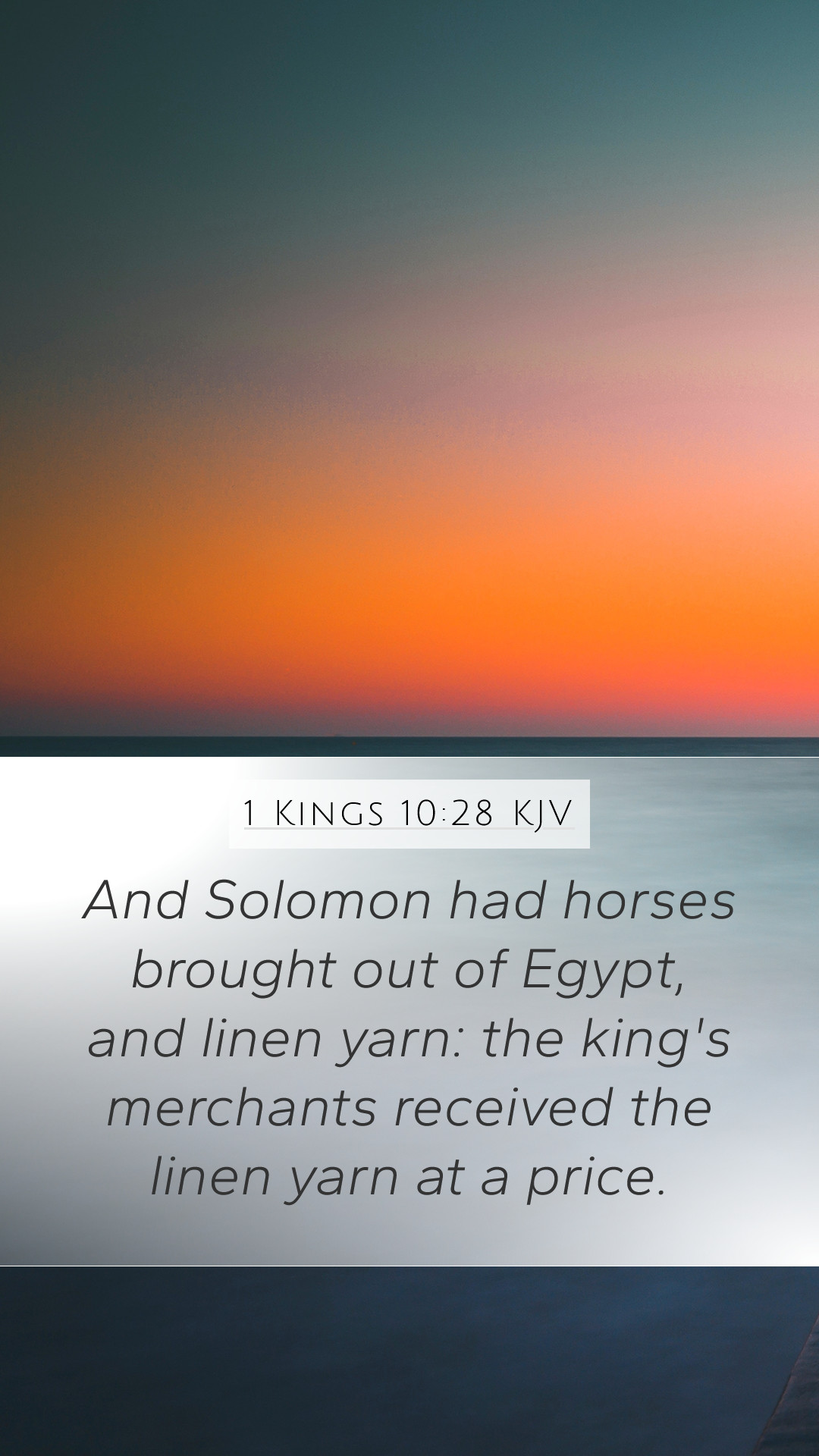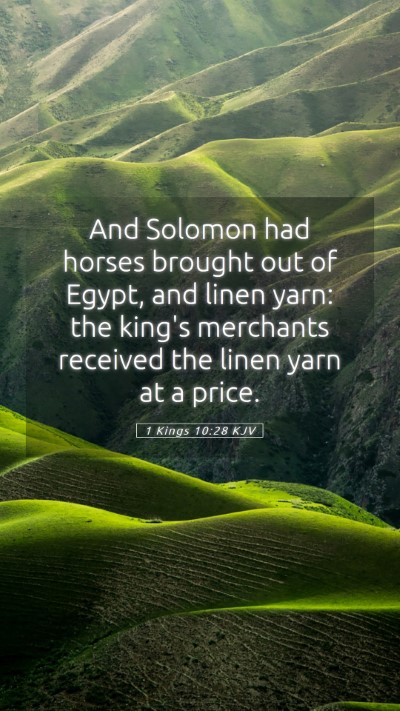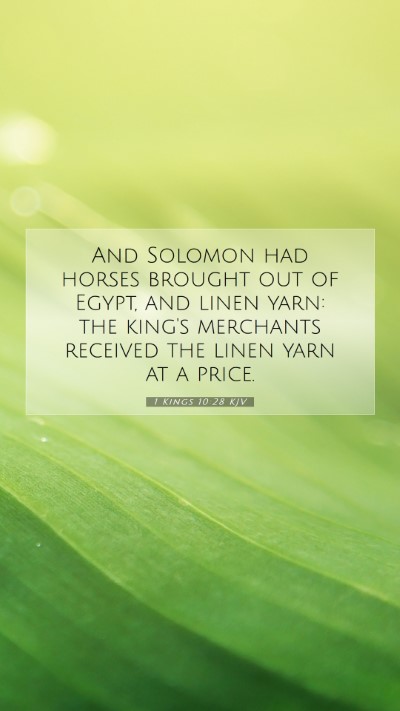Understanding 1 Kings 10:28
This commentary provides a thorough Bible verse explanation and interpretation of 1 Kings 10:28, exploring its historical context and significance through the insights of notable theologians such as Matthew Henry, Albert Barnes, and Adam Clarke.
Verse Overview
1 Kings 10:28 (ESV): "And Solomon's import of horses was from Egypt and Kue, and the king's merchants received them from Kue at a price."
Verse Meaning and Insights
The verse refers to the extensive trade in horses that King Solomon conducted, highlighting the economic prosperity and the international relations established by his reign. Let's break down the insights from the commentaries:
-
Matthew Henry's Commentary:
Henry emphasizes the importance of Solomon's trade in horses, noting that this was a strategic move for the kingdom's military strength. He suggests that the horses from Egypt were esteemed for their quality, indicating that trading for them was a sign of diplomatic ties and envy towards the wealth of surrounding nations.
-
Albert Barnes' Notes:
Barnes notes the geographical significance of Kue, thought to refer to a region in Asia Minor, which underscores the broad trade network that Solomon established. He asserts that the importation of horses was essential for sustaining the army and suggests that the expenditure indicates Solomon's wealth and opulence. The historical context reveals how horses were integral for warfare and transportation in ancient Israel.
-
Adam Clarke's Commentary:
Clarke provides particular focus on the pricing structure of horses and the merchant transactions involved. He reveals that trade served as a means to bolster Solomon's reputation and power. Clarke connects this to broader themes of wisdom and prosperity during Solomon’s reign, pointing out that Solomon's wisdom attracted merchants and dignitaries from afar, ultimately reflecting God's favor upon him.
Key Themes and Applications
The analysis of this verse highlights several key themes and applications:
- Economic Prosperity: Solomon's reign exemplifies how wise governance can lead to national prosperity and the importance of trade relations.
- Military Strategy: The acquisition of horses reflects the significance of military strength in the ancient world. Thus, readers can gain insights into the strategic elements that historical leaders considered essential.
- Divine Favor: Solomon’s wealth and wisdom are portrayed as blessings from God, pointing to the theme of divine providence. Understanding this reinforces the broader message of seeking Godly wisdom in leadership.
Cross References
To deepen understanding of this verse, consider these related passages:
- Deuteronomy 17:16: "Only he must not acquire many horses for himself, or cause the people to return to Egypt in order to acquire many horses..." – This verse provides background against which Solomon’s actions can be judged.
- 1 Kings 4:26: "And Solomon had 40,000 stalls of horses for his chariots, and 12,000 horsemen." – This elaborates on the mention of horses in relation to royal power.
- 2 Chronicles 9:28: "And they brought to him horses from Egypt and from all lands." – This parallel highlights Solomon’s trade influence and integrity across scripture.
Conclusion
1 Kings 10:28 not only gives insight into Solomon's reign but also into the social, military, and economic fabric of ancient Israel. The insights from prominent commentaries provide valuable Bible study resources for those seeking a deeper understanding of Scripture. Engaging with these interpretations encourages reflection on how historical contexts can inform contemporary applications of biblical principles.
Further Consideration
For those involved in bible study groups or online bible study, exploring these insights through discussion can lead to enriched understanding and personal application. Consider using bible study tools and bible study guides to analyze other passages in parallel to 1 Kings 10:28, enhancing your bible study lessons.


